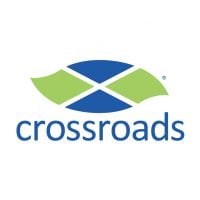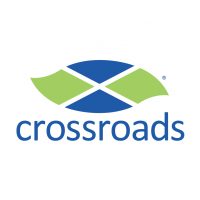Community Counseling Center
Drug Rehab Center in Greenville, Pennsylvania
- Mental Health
- Dual Diagnosis
Community Counseling Center is an outpatient facility located in Greenville, PA that specializes in providing individualized treatment and services for those struggling with dual-diagnosis and mental health challenges, including couples, family and group therapies, as well as trauma, dual-diagnosis and cognitive behavioral treatments, and accepting private health insurance.
About Community Counseling Center in Pennsylvania
Community Counseling Center is an outpatient facility located in Greenville, PA that specializes in offering treatment and services for those struggling with dual-diagnosis and mental health challenges. They offer assistance to individuals and couples and have extensive experience in working with families. They offer a variety of methods and treatments designed to support and help their clients reach their treatment objectives, including couples therapy, family therapy, group therapy, individual therapy, trauma therapy, dual-diagnosis treatment and cognitive behavioral treatment.
In addition to their counseling services, Community Counseling Center also helps their clients overcome their challenges by accepting private health insurance. An individualized and customized program is created for each client to ensure they are receiving the proper attention and care they need to make a full recovery. The center is dedicated to providing the best possible care while fostering an atmosphere of understanding, respect, and support for each of their clients.
Genders
Ages
Modality
Additional
Conditions and Issues Treated
Levels of Care Offered
This center offers a variety of custom treatment tailored to individual recovery. Currently available are Dual-Diagnosis, Outpatient, with additional therapies available as listed below.
“Outpatient treatment is ideal for those who have a lower intensity addiction. It’s also suitable for those with a supportive environment and those on a tight budget.
Outpatient treatment can be considered the lowest intensity level of addiction treatment. It is ideal for early phase addiction or lower intensity addictions. It may involve weekly sessions instead of daily. Peer group support, 12-step programs, and individual counseling may still be used and anti-addiction medication.
Therapies & Programs
No single treatment works for all addicts; therefore, the goal of treatment and therapy should be to find what works best for each individual. Some people requiring addiction treatment may only need a few weeks of inpatient care. Others will require long-term residential care. Tolerance and withdrawal levels vary from person to person and thus affect the intensity of the treatment needed.
If an individualized approach to treatment and therapy is not offered, addicts may fail to reap benefits from their efforts. Professionals must customize plans according to their patient’s needs, limitations, and strengths. The goal of all forms of addiction treatment should be for addicts to find healthy ways to cope with their addiction and its underlying causes.
Couples therapy for drug addiction is a unique form of therapy that allows family members to work through the emotional issues of their loved one’s addiction together. Family members can support each other while learning how to cope with the addiction and encourage healthy changes.
Accordingly, couples therapy for drug addiction is designed for an addict and their significant other or spouse. The two will work with a therapist to learn how the addiction affects themselves and the relationship and how to break the negative patterns of behavior that may have developed.
Drug addiction can destroy a person’s life, as well as their family and friends. The loss of one’s ability to choose how to live and behave often leads the addict into depression, anger, guilt, and many emotional problems.
The therapies usually include siblings, children, and parents who are involved in their daily lives. These sessions are vital because they address past issues that may have hampered an addict’s or alcoholic’s recovery and provide support at a crucial time!
One of the most critical aspects of family therapy is helping addicts’ loved ones see their situation in a new light. It’s also one of the most challenging things a family can do when a loved one struggles with addiction or alcoholism.
Group therapy is held in a safe, controlled setting where patients can feel comfortable sharing their struggles and gaining perspective through shared conversations. It takes place in a group rather than one on one to prevent feelings of isolation or being unique in their situation while creating an environment for addicts at Community Counseling Center to develop fellowship, accountability, and support. Group therapy is an important tool in recovery that prevents cravings that prompt a return to active addiction.
This type of therapy involves the use of a variety of therapeutic techniques to help addicts recover from past traumas that might have triggered their substance abuse. During these sessions, therapists will work with the addict to address painful memories and learn how to cope effectively with stressors as they arise.
During these types of sessions, therapists will typically focus on three main goals:
- Identifying and expressing painful emotions associated with past traumas.
- Reducing the effects of stress on an addict’s life by developing more effective coping mechanisms.
- Developing healthy ways of thinking about stressful situations that can help addicts avoid substance abuse issues in the future.
This type of therapy is typically used in conjunction with other types of addiction treatment services. By identifying and dealing with the root cause of addiction, most addicts can overcome their cravings and prevent relapse once they leave rehab.
Many different types of addiction treatment services exist to help addicts safely get sober, but it’s important for recovering individuals to find a therapist or support group that will help them address the root cause of their addiction.
Cognitive-behavioral therapy is a talking-based method that helps people struggling with addiction replace destructive behaviors with healthier ones. CBT also helps them identify the underlying thoughts and beliefs that cause these behaviors in the first place and ways to control those thoughts and feelings. It can be administered as a holistic therapy or as part of combination therapy and—as opposed to turning to drugs and alcohol—helps addicts learn how to respond to negative thoughts instead.
Payment Options Accepted
For specific insurance or payment methods please contact us.
Is your insurance accepted?
Ask an expert, call (888) 674-0062
Additional Details
Specifics, location, and helpful extra information.
Greenville, Pennsylvania 16125 Phone Number(724) 588-6490 Meta DetailsUpdated November 25, 2023
Staff Verified
Community Counseling Center Patient Reviews
There are no reviews yet. Be the first one to write one.
Greenville, Pennsylvania Addiction Information
Pennsylvania ranks 14th in the nation for drug-related deaths. More than 10% of all deaths in Pennsylvania have been related to drugs and alcohol. 30% of Pennsylvania youth reportedly drink alcohol monthly, with more than 20,000 teenagers having an alcohol problem. The rate of opioid misuse in Pennsylvania is double the national average.
15% of residents in Greenville, Pennsylvania report past-month use of illicit drugs or prescription medication. Drug overdose deaths in the state have quadrupled since 1999. About 5,500 people in Greenville were admitted to treatment for heroin addiction in 2014. A few different drug treatment options are available in Greenville, Pennsylvania. Some of the most common include inpatient rehabilitation, outpatient rehabilitation, and detoxification programs.
Treatment in Nearby Cities
- Kittanning, PA (60.5 mi.)
- Oil City, PA (34.7 mi.)
- Haverford, PA (282.2 mi.)
- Watsontown, PA (183.9 mi.)
- Punxsutawney, PA (79.9 mi.)
Centers near Community Counseling Center



The facility name, logo and brand are the property and registered trademarks of Community Counseling Center, and are being used for identification and informational purposes only. Use of these names, logos and brands shall not imply endorsement. RehabNow.org is not affiliated with or sponsored by Community Counseling Center.




